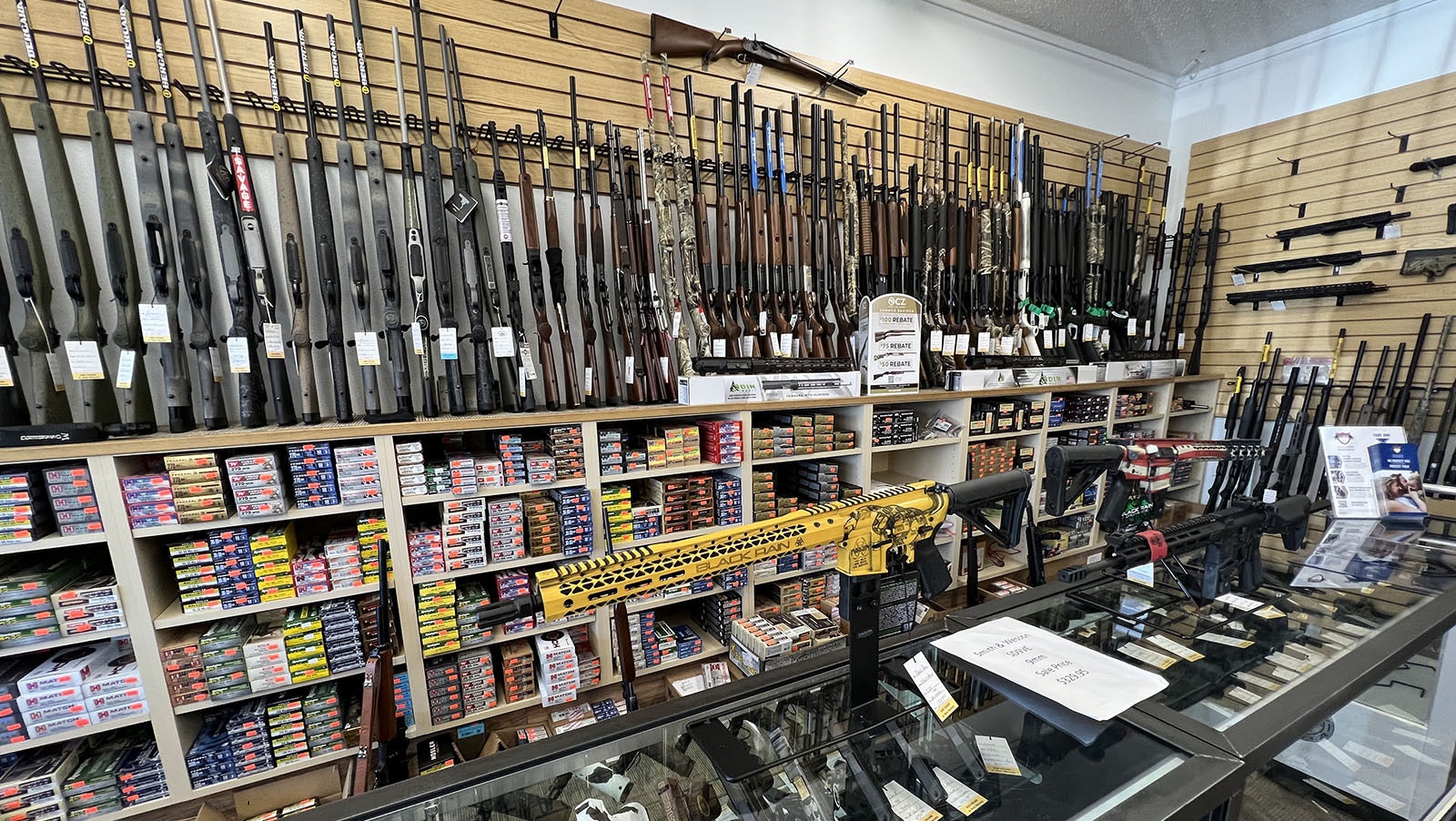Wyoming residents and firearms stores are a step closer to securing privacy for firearms purchases by limiting the ability of credit card companies to specifically track and flag those transactions.
The Senate Agriculture Committee unanimously passed Senate File 105 on Tuesday, which prohibits financial institutions from assigning codes to track firearms purchases in Wyoming.
SF 105, sponsored by state Sen. Dan Laursen, R-Powell, would make it unlawful for merchants to have their firearms or ammunition listed as such in their codes. The codes are created by financial entities to roughly describe the merchandise sold by a store.
Backdoor Registry
Certain banks like CitiBank have argued that these codes are used to only give instructions on how a transaction is processed, not to identify specific items purchased.
CitiBank’s parent company enacted a policy in 2018 that says it will not serve firearms retailers unless they prohibit the sale of firearms to anyone who hasn't passed a background check or is younger than 21. They also prohibit the sale of bump stocks or high-capacity magazines with their credit cards.
Nephi Cole, director of government relations and state affairs for the National Shooting Sports Foundation, said the codes open up a door for people who buy products for firearms stores to have their actions labeled as “suspicious activity,” and eventually have their access to various banking resources axed.
The practice “stops essentially legal commerce,” Cole said.
Laursen successfully added an amendment to the bill, drafted by representatives from the National Shooting Sports Foundation, adding language it believes is more all encompassing to cover all entities that assign codes and provides better definitions.

It’s All In The Definition
CBS News reported last week that major credit card companies are moving to make a merchant code available for firearm and ammunition retailers to comply with a new California law that allows banks to potentially track suspicious gun purchases and report them to law enforcement.
Cole said President’s Joe Biden’s administration, like many gun control advocates, have been pushing for the assignment of these codes nationally, but major credit card companies have mostly resisted, with Visa refusing to assign codes in states where it's been prohibited under law.
The bill states that a firearms entity can not be identified as such under Wyoming law.
Mark Jones, national director of hunter outreach for Gun Owners of America (GOA), said his organization also supports the concept of the bill, but brought his own amendments.
GOA recommended adding more restrictions to a merchant firearms category so there could be no identification in the future, and specific prohibitions on merchants adding their own codes.
Jones also recommended an amendment to broadly define credit card processors to cover third-party vendors like Venmo and PayPal from adding their own codes.
“We wanted to broadly define what a credit card processor was to capture any potential entity that might assign a category,” he said.
Stores Impacted Too
Jones said the bill will apply to Wyoming firearms owners and small firearms retailers.
“It’s designed to find who’s dependent on firearm sales and then discriminate against them later by revoking their credit,” Jones said.
Sen. Cheri Steinmetz, R-Lingle, questioned Laursen how merchants would be notified of the coding change, to which he had no answer. Laursen said he would need help with this piece when the bill is considered in the Senate.

Enforcement
Under the bill, if the use of firearm or ammunition merchant codes aren’t ceased within 30 days, the Wyoming attorney general can seek a court injunction to stop it.
The bill already contains a provision for pursuing civil litigation, but Jones advised also adding criminal liability for keeping a registry and or merchant category code. Laursen said he wouldn’t support that at this time.
“I think it might not be helpful,” he said.
The committee did not consider the amendment as it was submitted too late.
Under the bill, no state governmental agency or employee of the state or other governmental entity shall knowingly or willfully keep a record or registry of privately owned firearms or any list, record or registry of the owners of those firearms created or maintained through the use of a firearms code.
Allen Thompson, executive director of the Wyoming Association and Chiefs of Police, said law enforcement personnel around the state depend on these registries. He recommended adding a preclusion excluding law enforcement, which the committee unanimously approved.
Sen. John Kolb, R-Rock Springs, also successfully added an amendment to the bill including ammunition under the coding prohibition.
“Obviously, without bullets the guns are worthless,” Kolb said.
Similar Bills
Two other bills attempting to address firearms privacy already died in the House this session.
Jones said House Bill 151, a bill sponsored by Rep. Barry Crago, R-Buffalo, contained too many loopholes.
“It had loopholes that would allow for the creation of a registry,” Jones said. “We’re vehemently against gun registries — national, state, anywhere.”
Another bill that GOA supported was House Bill 182. HB 182 did not receive an introductory vote by the deadline Friday.

Leo Wolfson can be reached at leo@cowboystatedaily.com.





